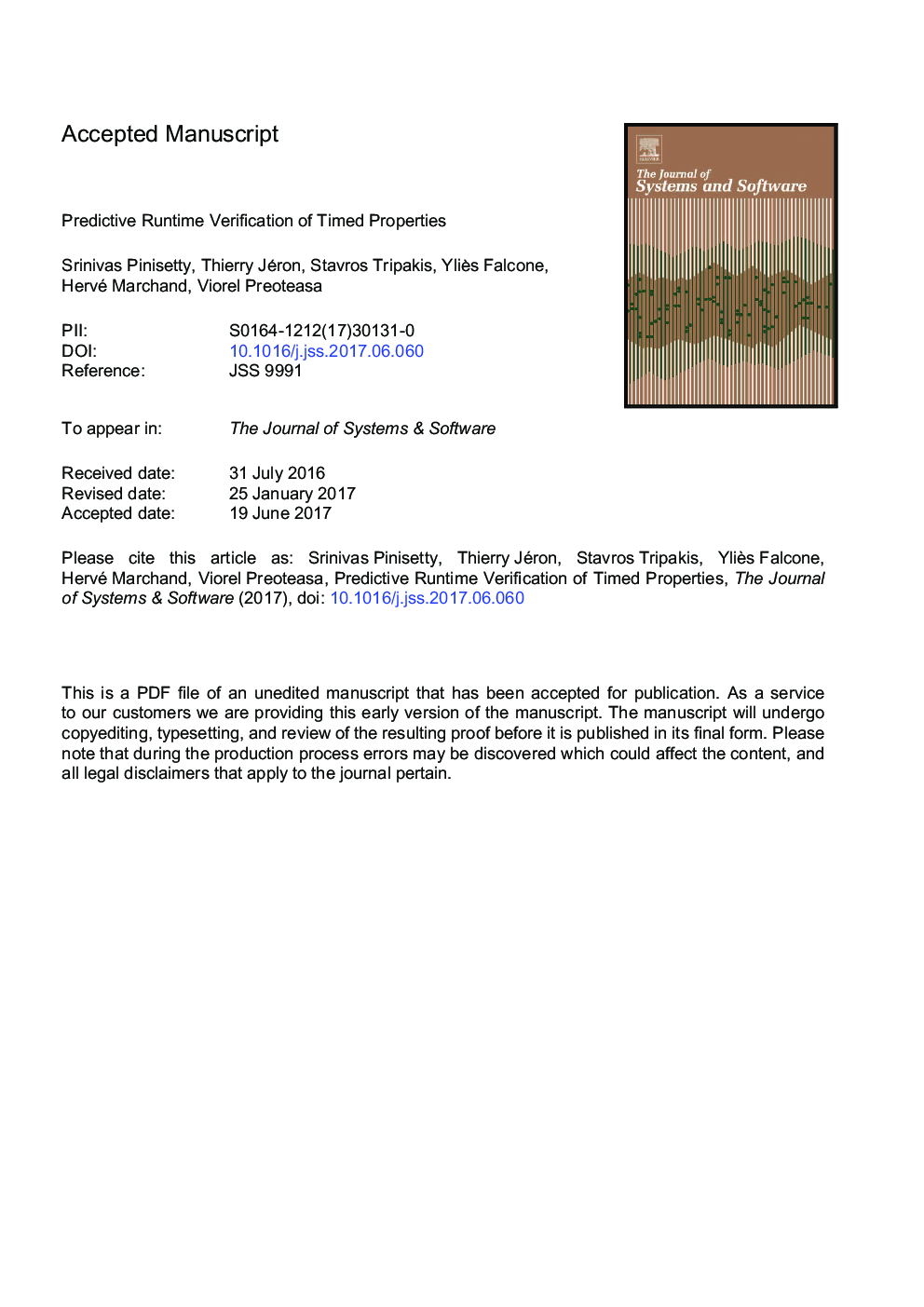| Article ID | Journal | Published Year | Pages | File Type |
|---|---|---|---|---|
| 4956395 | Journal of Systems and Software | 2017 | 32 Pages |
Abstract
Runtime verification (RV) techniques are used to continuously check whether the (un-trustworthy) output of a black-box system satisfies or violates a desired property. When we consider runtime verification of timed properties, physical time elapsing between actions influences the satisfiability of the property. This paper introduces predictive runtime verification of timed properties where the system is not entirely a black-box but something about its behaviour is known a priori. A priori knowledge about the behaviour of the system allows the verification monitor to foresee the satisfaction (or violation) of the monitored property. In addition to providing a conclusive verdict earlier, the verification monitor also provides additional information such as the minimum (maximum) time when the property can be violated (satisfied) in the future. The feasibility of the proposed approach is demonstrated by a prototype implementation, which is able to synthesize predictive runtime verification monitors from timed automata.
Related Topics
Physical Sciences and Engineering
Computer Science
Computer Networks and Communications
Authors
Srinivas Pinisetty, Thierry Jéron, Stavros Tripakis, Yliès Falcone, Hervé Marchand, Viorel Preoteasa,
